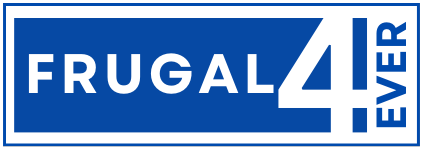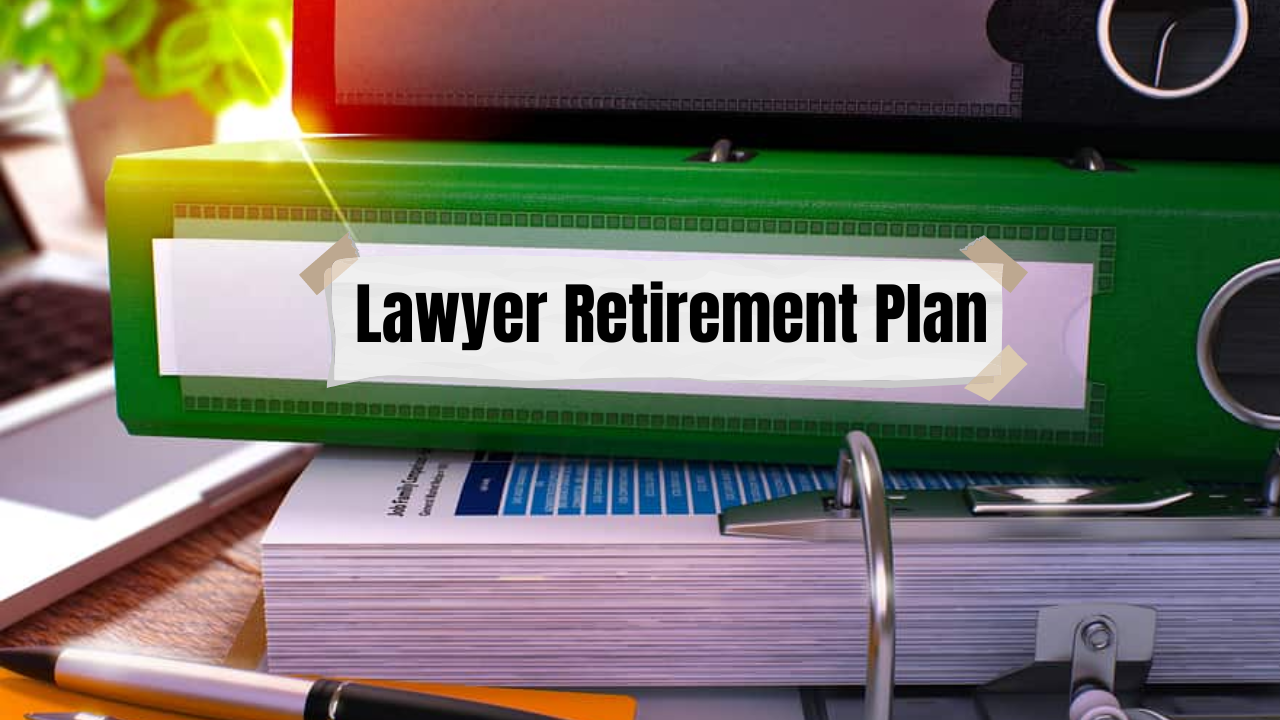A few months back, a close friend of mine excitedly launched her very own lifestyle blog. It was her passion project, the culmination of months of hard work. But within weeks, she was given a notice for not having a proper privacy policy. She had overlooked the intricacies of the blogging world's legal realm, thinking her small blog would fly under the radar.
She wasn’t alone. According to a survey by blogging.org, 35% of bloggers are unaware or only partially aware of the legal aspects of blogging. This gap in knowledge can lead to unexpected challenges and penalties.

I realized then that many of us, particularly those just starting out, may find the legal requirements of blogging overwhelming and complex. Thus, this article aims to demystify this often daunting world, guiding you through the essentials like privacy policies, disclaimers, and copyright considerations.
By the end of this comprehensive guide, you'll be equipped with the knowledge to navigate the blogging sphere confidently and legally. Let’s embark on this journey together, ensuring you’re not just creating but also protecting your online legacy.
The Importance of Legal Compliances in Blogging
Blogging is not just about crafting impeccable content or sharing our unique perspectives with the world. Behind the scenes, an intricate web of legalities governs the digital realm, ensuring fairness, security, and trustworthiness. Sadly, many bloggers learn about these legalities the hard way.

Did you know? According to a report by Lexology, an estimated 20% of bloggers have faced some form of legal action or dispute due to non-compliance. Whether it's copyright infringements, data protection breaches, or undisclosed affiliations, the spectrum of legal challenges is vast.
The repercussions of overlooking legal compliances in blogging are manifold:
- Monetary Fines: In 2020, the Federal Trade Commission (FTC) fined a popular influencer $250,000 for failing to disclose affiliate relationships in their posts.
- Content Takedowns: Blogs without proper permissions or licenses can see their hard work removed overnight due to copyright infringements.
- Lawsuits: Legal disputes aren't just stressful; they can tarnish your reputation. With the rise of digital content, lawsuits related to online content have seen an uptick of 15% in the last five years.
Navigating the blogging landscape without a clear understanding of its legal requirements is akin to walking on a tightrope blindfolded. As the old saying goes, “It's better to be safe than sorry.” The next sections will guide you through these critical legal checkpoints, ensuring that your blogging journey is smooth, secure, and compliant.
Privacy Policies: More than Just a Formality
When we think of a blog's backbone, compelling content, engaging design, and user experience might be the first things that come to mind. But there's another crucial component, often unnoticed but profoundly impactful: the privacy policy.

A privacy policy is a legal statement that discloses how a blog or website collects, uses, discloses, and manages a user's data. At its core, it's a pledge to handle readers' personal information with the utmost care and transparency.
Data breaches and cyber threats have propelled data protection to the forefront of global consciousness. Enter the General Data Protection Regulation (GDPR). Implemented in 2018 by the European Union, GDPR mandates stringent data protection measures for entities operating within and outside the EU, emphasizing the rights of data subjects. Its influence is profound and global. Non-compliance can result in hefty fines, with some businesses facing penalties of up to €20 million or 4% of their annual global turnover, whichever is higher.
Crafting a comprehensive privacy policy isn't just a nod to formalities—it's a critical step in building trust with your audience and staying legally compliant. Here are some tips and resources to get you started:
- Be Transparent: Clearly explain what data you're collecting (e.g., email addresses, names) and why (e.g., newsletters, comments).
- Explain Data Usage: Describe how you use the collected data. This could be for personalizing content, improving user experience, or for marketing purposes.
- Third-Party Disclosures: If you're using third-party tools or platforms that access user data, such as Google Analytics, disclose it.
- Cookie Clarity: If your blog uses cookies, mention their purpose and how users can opt out.
- Seek Professional Help: While there are various online privacy policy generators that can give you a basic framework, consulting with a legal expert can ensure a tailor-fit policy for your specific needs.
Privacy isn't just about compliance; it's a testament to your commitment to your readers. As you continue building your online presence, let your privacy policy clearly reflect your values and dedication to safeguarding user trust.
Crafting the Perfect Disclaimer: Protecting Yourself and Your Readers
Just as a helmet protects a cyclist or a seatbelt safeguards a driver, a disclaimer is a blogger's first line of defense against potential pitfalls. It might not sound glamorous, but its importance cannot be overstated.

At its core, a disclaimer is a statement clarifying that the information provided on your blog is for general informational purposes only, absolving you from certain liabilities. In essence, it's a way of saying, “Here's my advice; take it with a grain of salt.”
For bloggers, a well-crafted disclaimer can shield them from potential legal issues. Let's say, for instance, someone tries a passive income tip from your blog and doesn't achieve the results they expected. A disclaimer can act as a buffer, stating that outcomes can vary and the blog isn't offering guaranteed financial advice.
So, what does a standard disclaimer look like, and how can you tweak it for a blog like yours, focused on passive income and online earnings? Let's delve into:
- General Information Only: State clearly that your blog provides general advice and information, not professional or expert advice.
- No Guarantees: This is especially relevant for income-related blogs. Mention that while you provide strategies and tips, you cannot guarantee specific financial outcomes.
- Affiliate Links: If discussing products or services, mention that some links might be affiliate links, earning you a commission without any extra cost to the reader.
- Testimonials and Success Stories: If sharing success stories, ensure readers know results may vary and aren't typical.
- External Links: Mention that you're not responsible for the content or practices of websites you link to.
Personalizing your disclaimer is vital. For a passive income blog, you could state, “The passive income strategies mentioned here have worked for me and many others, but success varies based on individual circumstances, efforts, and market dynamics.”
A disclaimer isn't just a protective shield; it's a testament to your transparency and commitment to readers. It fosters trust, reminding your audience that while you're here to guide them, the journey's outcome also depends on their unique paths and decisions.
Copyright Considerations: Safeguarding Original Content
Pouring hours into crafting a blog post, only to find it duplicated elsewhere without credit, can be heart-wrenching. In the bustling digital landscape, where content is king, ensuring the royalty of our creations is paramount. Enter the realm of copyright laws.

Copyright is a legal term that grants the creator of original work exclusive rights to its use and distribution. For bloggers, this means your written words, photos, and any other original content you produce is automatically yours from the moment of creation.
Shockingly, according to a study by Copysentry, there's been a 58% increase in online content theft over the past decade. This surge underscores the necessity of understanding and enforcing copyright protections for bloggers.
To ensure your content remains uniquely yours, consider these tips and tools:
- Watermark Visuals: If you create original graphics or photographs, adding a subtle watermark can deter unauthorized use.
- Include a Copyright Notice: A simple “© [Year] [Your Blog Name]. All Rights Reserved.” at the bottom of your site can remind visitors of your rights.
- Use Monitoring Tools: Tools like Copyscape can check for duplication of your content across the web, alerting you to potential infringements.
- Stay Educated: Familiarize yourself with the Digital Millennium Copyright Act (DMCA) which can help in takedown requests for stolen content.
On the flip side, knowing how to ethically and legally use others' content is also essential. This is where fair use guidelines come into play. Fair use is a doctrine that allows limited use of copyrighted material without permission for purposes like criticism, commentary, news reporting, or education. When referencing another blogger's content:
- Always Give Credit: Whenever you use a quote, image, or any piece from someone else's work, ensure you credit them appropriately.
- Quote Sparingly: Don't reproduce large sections of someone else's work; use concise quotes that are directly relevant to your topic.
- LinkBack: If referencing an online article or blog post, always include a link back to the original content.
- Seek Permission: If in doubt, it's always best to reach out and ask for permission before using someone else's content.
Navigating the waters of copyright might seem daunting, but it's a crucial aspect of maintaining the integrity and uniqueness of your digital space. As you continue to produce and share content, let respect—for both your work and the work of others—be your guiding light.
Affiliate Marketing and the Legalities Involved
Ah, affiliate marketing. It is a buzzing term in the blogging realm, offering a lucrative stream of passive income. But with great revenue potential comes great responsibility—particularly in the legal sphere.

While intertwining content with affiliate links might seem seamless, there's an invisible but crucial line every blogger must draw: transparency. Your readers place trust in your recommendations, and it's paramount that this trust remains unbroken.
The Federal Trade Commission (FTC) has set clear guidelines on endorsements and testimonials, emphasizing the need for honesty and clarity. You need to disclose this information if you're endorsing a product and getting paid for it (directly or indirectly through affiliate commissions).
- Clear and Conspicuous: Disclosures should be clear and easy to understand. Phrases like “This post contains affiliate links, meaning I receive a small commission at no extra cost to you if you make a purchase through this link” can suffice.
- Placement Matters: Place the disclosure close to the affiliate link. Ideally, it should be before the link or product recommendation, ensuring the reader sees it.
- Regular Reminders: If your blog post contains multiple affiliate links, consider sprinkling in a few reminders about the affiliate relationship throughout the content.
- Be Genuine: Recommend products you genuinely believe in. Your readers' trust is invaluable, and misleading them for short-term gains can damage your blog's reputation in the long run.
Beyond the legalities, disclosing affiliate relationships is about building and maintaining trust with your audience. It sends a message: “I'm guiding you based on my genuine experiences, and while I might earn a bit from it, I prioritize your interests.”
In the world of affiliate marketing, being transparent isn't just a legal necessity—it's an ethical cornerstone. As you weave in affiliate links and endorsements, let your dedication to honesty and your readers' trust be your guiding stars.
Other Key Legalities to Keep in Mind
The digital landscape of blogging is akin to an iceberg. What we see—the posts, the images, the comments—is just the tip, while a vast expanse of legal considerations lies beneath. So, let's dive deeper into some other pivotal legal aspects that often float under the radar.

Collaborations and Contracts
The horizon may change even if you're not collaborating with other bloggers or brands now. When it does, a handshake or verbal agreement won't cut it. A written contract is crucial, whether it's a sponsored post, a guest blogging opportunity, or a product review. It delineates responsibilities, payment terms, content ownership, and more, ensuring both parties are on the same page.
User-Generated Content
Introducing a membership feature means opening the doors to user-generated content, be it in the form of comments, forums, or even user blogs. While this content enriches your platform, it also brings liability concerns. Setting clear community guidelines can help. Outline what's permissible and what's not, and consider implementing a system to moderate and review user contributions. You foster a positive community space while mitigating potential legal risks.
Global Audience, Local Laws
Blogging is a global endeavor. A reader in Australia can access content from a blogger in the US. But this worldwide reach means you might brush against various local laws. For instance, some countries have stringent regulations on digital content, data privacy, and advertising. Being aware of the key regulations, especially in countries where a significant portion of your audience resides, is invaluable. Consulting with legal professionals who understand international digital laws can be a game-changer when in doubt.
In essence, the world of blogging is dynamic, continually evolving with technological advancements and legal stipulations. Staying updated and informed isn't just about compliance—it's about showcasing professionalism, fostering trust, and paving a smooth path for your blogging journey.
Conclusion
As we reach the end of this insightful journey through the legal maze of blogging, one thing stands crystal clear: being legally compliant isn't a mere checkbox—it's the foundation upon which trust, integrity, and longevity in the blogging sphere are built.

Just like the digital realm is in constant flux, so are the legal guidelines governing it. What was pertinent a year ago might be obsolete today. It's a dynamic landscape, and as bloggers, it's our responsibility to keep pace. Whether it's your privacy policy, disclaimer, or any other legal document, revisiting them periodically isn't just recommended—it's essential.
The power of knowledge, especially legal knowledge, cannot be overstated. It safeguards our creations, fortifies our connections, and ensures our beloved digital space remains a beacon of trust and authenticity for every visitor.
So, as you continue to pen down your thoughts, share experiences, and connect with readers worldwide, let's pledge to make legality our silent partner—guiding, protecting, and ensuring our blog remains a trusted space for years to come.
Helpful Resources
Navigating the complex world of blogging legality doesn't have to be a solo endeavor. Arm yourself with these resources, designed to simplify, enlighten, and guide you through every twist and turn of the legal landscape.
Free Resources
- Better Business Bureau (BBB): Understand business practices and consumer rights.
- U.S. Copyright Office: Comprehensive guidance on copyright laws.
- TermsFeed: Free templates for privacy policies, terms of use, and more.
- Federal Trade Commission (FTC): Guidelines on digital advertising and endorsements.
Paid Resources
- Udemy Blogging Courses: Various courses covering the business and legal aspects of blogging.
- LegalTemplates: Access to premium legal documents tailored for online businesses.
- LegalZoom: Personalized legal solutions, including consultation services.
- Lynda's Blogging Tutorials: In-depth tutorials on blogging's various facets, including legal considerations.
While these resources provide invaluable insights, always remember that seeking advice from a professional attorney can be invaluable when it comes to intricate legal concerns. Happy blogging and stay informed!










